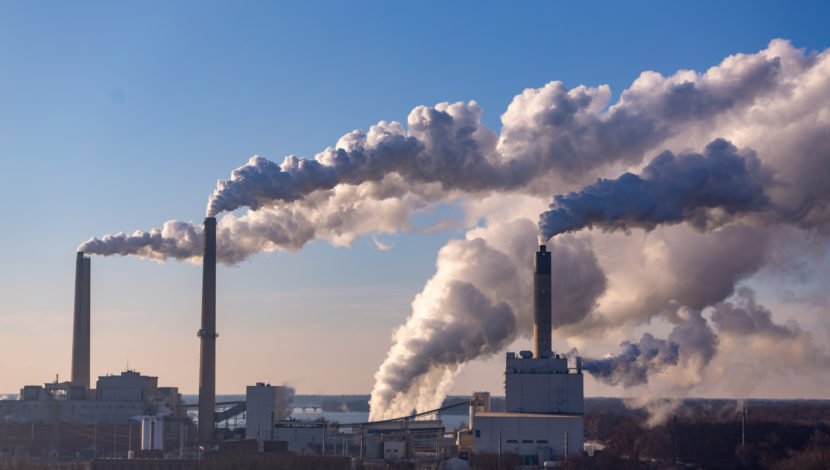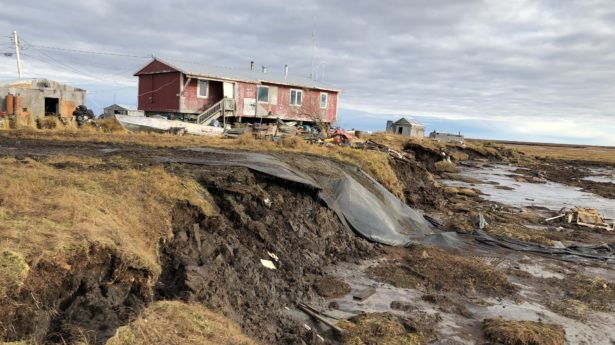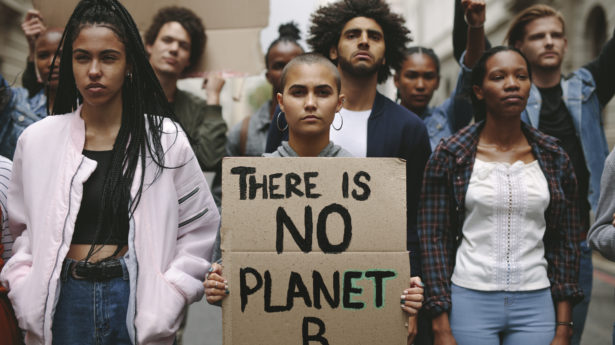The Unitarian Universalist Service Committee advances human rights through grassroots collaborations.
SCOTUS Will Not Get the Last Word on Climate

July 22, 2022
In the final weeks of the Supreme Court’s term, our eyes were riveted by the justices’ appalling decision to throw out a half-century’s worth of jurisprudence protecting reproductive rights. While the public was still reeling from this opinion, however, the court issued another major ruling just a week later that will also have devastating consequences for human rights. In the case West Virginia v. Environmental Protection Agency (EPA), the court’s right-wing majority severely limited the federal government’s ability to regulate greenhouse gas emissions from power plants, blocking climate action at a time when it is more desperately needed than ever.
As the court’s ruling lands, the planet-wide climate crisis is becoming more severe by the day, displacing thousands if not millions of people from their homes. By declaring that the EPA can only regulate within the “fenceline” of power plants, the majority’s ruling will make these problems even worse. It significantly curbs the government’s ability to prevent more global warming, will inflict untold damage on frontline communities already disproportionately experiencing the effects of air pollution and environmental racism, and will curtail the government’s ability to meet its obligations under international agreements to reduce carbon emissions.
Climate justice organizers have noted the catastrophic damage that this ruling is likely to inflict, as well as its parallels with the court’s ruling in Dobbs v. Jackson Women’s Health—the decision overturning Roe v. Wade. Both rulings, advocates point out, will disproportionately impact Black, Brown, and Indigenous communities in the United States, who are more likely both to be on the frontlines of air pollution and climate destruction—due to environmental racism and other structural inequities—and to be targeted by efforts to criminalize and police reproductive health care.
Both decisions therefore threaten the basic rights of nonwhite, poor, and working class people to exercise self-determination over their own bodies. The Climate Justice Alliance—a grassroots coalition of communities on the front lines of climate damage and environmental racism—noted in their statement responding to the West Virginia v. EPA ruling: Coming in lockstep with the decision in Dobbs, the ruling constitutes “a further assault on our bodies and rights.”
The Indigenous Environmental Network (IEN) likewise compared the ruling to Dobbs, as well as another Supreme Court opinion from this term, Oklahoma v. Castro-Huerta, which struck a blow against Indigenous sovereignty over Tribal Nations’ lands. IEN rightly characterized all three opinions as “destructive.” They also placed West Virginia v. EPA in the context of the longer history of settler colonialism and the genocide of Indigenous peoples, writing: “the Supreme Court’s latest decision underwrites continued settler violence perpetrated against Indigenous peoples, our lands, our bodies, our nations, and our futures.”
Some legal observers noted that the court’s conservative majority could have reached an even more extreme conclusion than they did. In the lead-up to the opinion’s announcement, many experts feared the court might use the case as an opportunity to overturn prior precedent finding that federal agencies are entitled to deference in their interpretation of statute. In practice, this would mean federal agencies would be blocked from taking virtually any action without detailed, specific instructions from Congress.
Such a requirement would be an absurd interpretation of the law and grind much of the machinery of the federal government to a halt, severely curtailing the government’s ability to protect the public from predatory and environmentally-destructive private actors. The decision the court ultimately reached stopped short of such an extreme measure, permitting the government to regulate carbon emissions up to a point (though it drastically narrowed the scope of its ability to do so).
Still, it is a sign of how low public trust in the court has sunk that the majority’s abysmal ruling was welcomed in some quarters as better than it could have been. After all, there is precious little to celebrate in the majority’s opinion as it is. At a time when the United States is already failing to meet its emissions reduction targets (a particularly concerning failure given the United States’s historic role in causing the climate crisis in the first place), the court’s decision moves us in entirely the wrong direction. The United States should be expanding its efforts to regulate greenhouse gas emissions, not scaling them back.
UUSC and our partners cannot accept any court decision that will expose even more communities to climate-forced displacement and planetary destruction, undermining the right of all people to a livable climate. Nor will we regard the Supreme Court’s ruling as the final word. The climate crisis is a global problem, and the U.S. Supreme Court, thankfully, does not have global jurisdiction (even as its decision in West Virginia will have damaging ripple effects across the world). A planet-wide crisis demands planet-wide solutions.
That is why UUSC is following our partners’ lead in sending this issue to international tribunals. Led by our partners the Pacific Islands Students Fighting Climate Change, we are joining their call for the UN’s International Court of Justice to take action by issuing an Advisory Opinion on governments’ human rights obligations in the face of the climate crisis. You can add your support to the call for an Advisory Opinion and help advance climate justice globally at this link.
By ruling the way it did in West Virginia v. EPA, the court demonstrated its contempt and indifference for one of the most pressing issues of our time, affecting the lives, rights, and futures of billions of people around the globe. While the court has seized all too much power to shape the climate policy of this nation, however, they do not have the final word. The global community as a whole is demanding climate action, and we will take our fight to international courts for as long as we need to, until climate justice prevails.
Photo Credit—iStock: DWalker44

